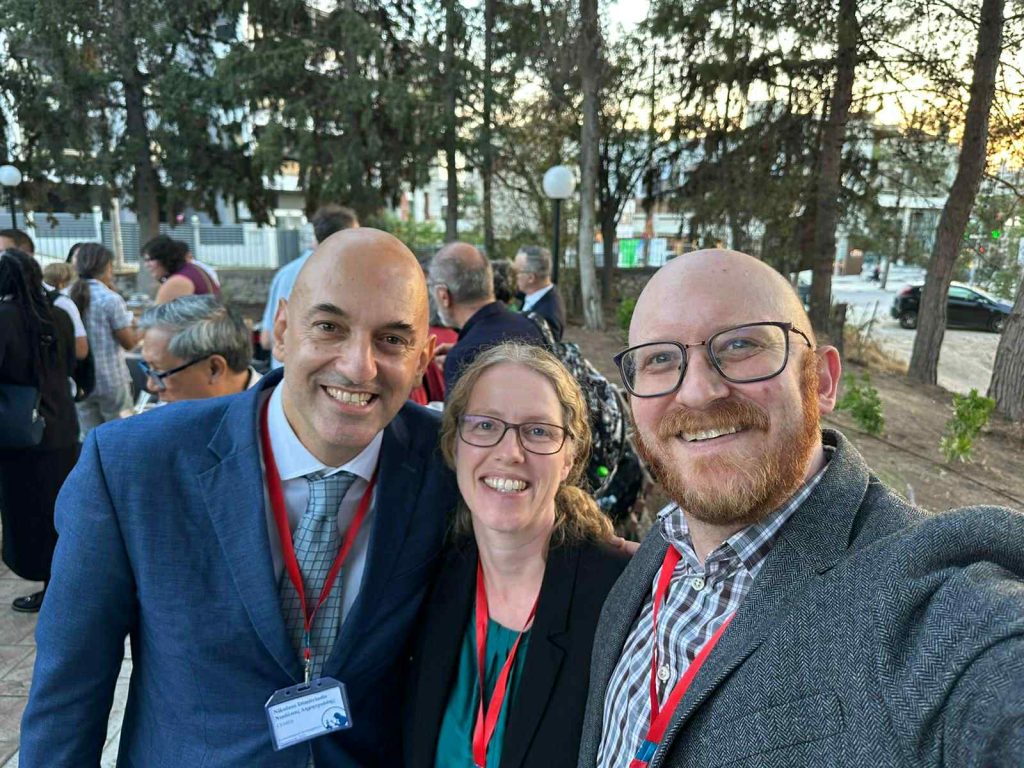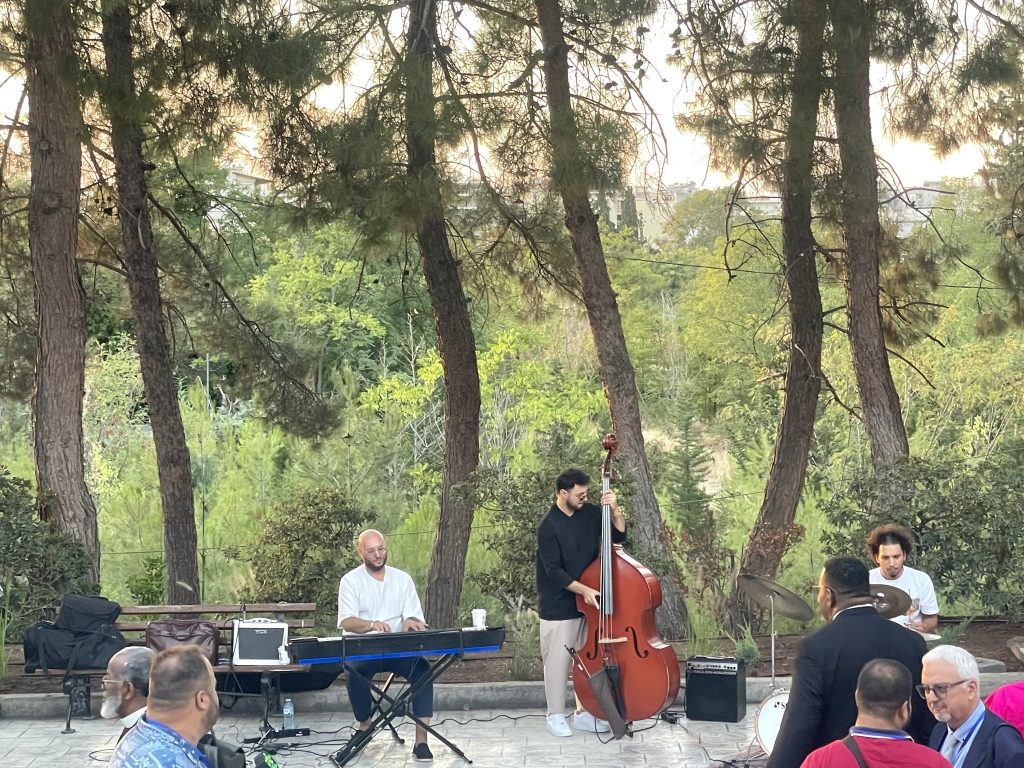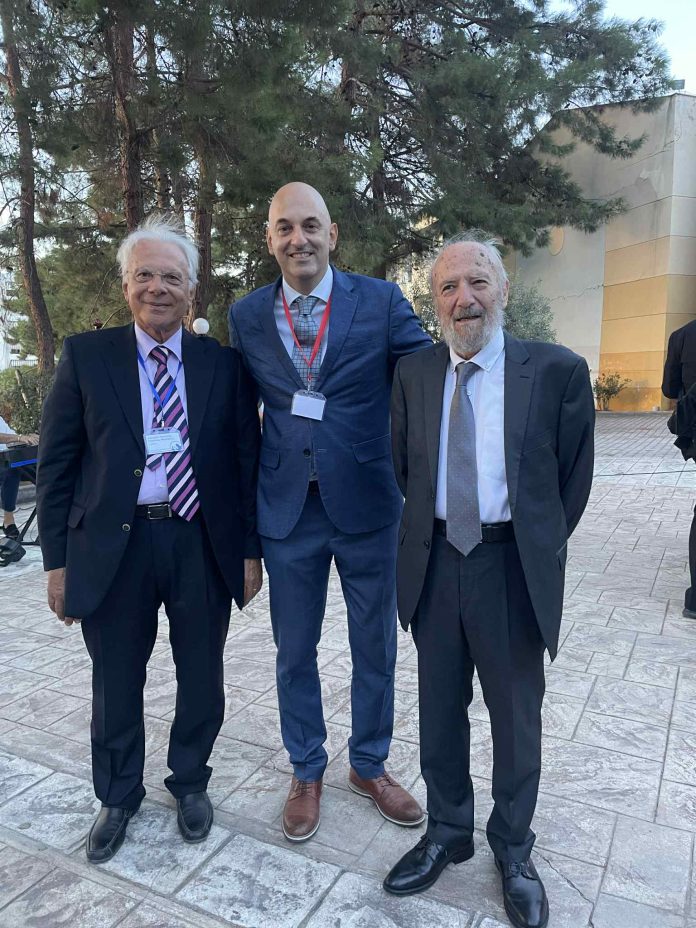Το Κέντρο Οικουμενικών, Ιεραποστολικών και Περιβαλλοντικών Μελετών «Μητροπολίτης Παντελεήμων Παπαγεωργίου» (CEMES), συνδιοργάνωσε Διεθνή Συνάντηση στην Θεσσαλονίκη με θέμα «Dissent, Power and Christian Identity after Nicaea» και με αφορμή τα 1700 χρόνια από την Α’ Οικουμενική Σύνοδο στην Νίκαια της Βιθυνίας.
Το συνέδριο πραγματοποιήθηκε από τις 17 έως τις 19 Σεπτεμβρίου στο Κέντρο Αγίου Γρηγορίου Παλαμά της Μητροπόλεως Θεσσαλονίκης και στο Αμερικανικό Κολλέγιο Θεσσαλονίκης, σε συνεργασία με ιδρύματα όπως το Κέντρο Οικουμενικών, Ιεραποστολικών και Περιβαλλοντικών Σπουδών (CEMES), το Boston College, το Θεολογικό Σεμινάριο του Πρίνστον, το Πανεπιστήμιο Fordham και άλλα. Η συνάντηση δεν αποσκοπούσε στην επανάληψη στερεοτύπων ή στην ενασχόληση με ιστορικούς εορτασμούς, αλλά στη δημιουργία ενός διεπιστημονικού και οικουμενικού «εργαστηρίου» για τον αναστοχασμό σχετικά με το πώς η κληρονομιά της Νίκαιας διαμορφώνει την ταυτότητα της Εκκλησίας σήμερα, την ενότητά της, τα ρήγματά της και τον ρόλο της σε έναν πλουραλιστικό κόσμο. Ανοίγοντας το συνέδριο, ο Μητροπολίτης Φιλόθεος, Επίτιμος Πρόεδρος του CEMES, προσέφερε την ευλογία και την ενθάρρυνση στους συμμετέχοντες. Τα λόγια του, που προκάλεσαν ζωηρά χειροκροτήματα, έδωσαν τον τόνο ευγνωμοσύνης, ευθύνης και ελπίδας.
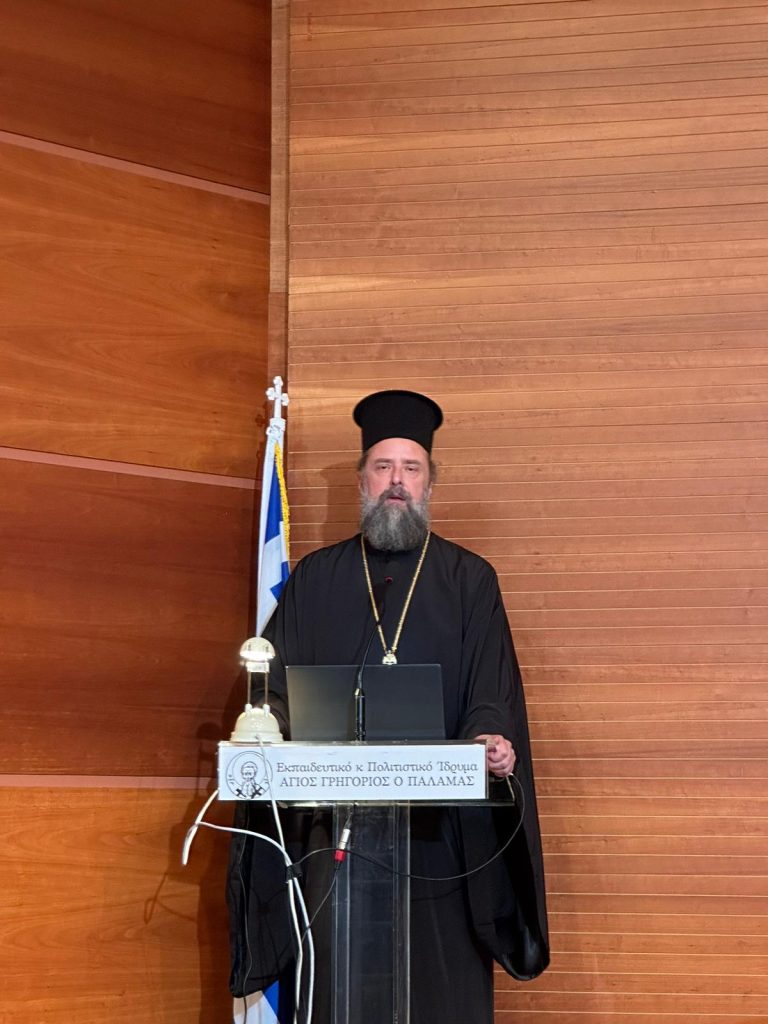
Εκ μέρους του CEMES, ο Πρόεδρός του, Καθηγητής Δρ. Νικόλαος Δημητριάδης, κάλεσε τους συμμετέχοντες να τηρήσουν ενός λεπτού σιγή στη μνήμη του αείμνηστου Καθηγητή Χρυσόστομου Σταμούλη, θεολόγου της Θεσσαλονίκης, ο οποίος μνημονεύεται για το πνευματικό του βάθος και τη συμβολή του στον οικουμενικό διάλογο. Ο Δρ. Δημητριάδης πρόσθεσε: «Παραμένουμε εμπνευσμένοι από το όραμα της Αυτού Παναγιότητoς του Οικουμενικού Πατριάρχου Βαρθολομαίου, ο οποίος ευλόγησε το Κέντρο μας από την πρώτη κιόλας ημέρα και μας υπενθύμισε ότι το μέλλον της Εκκλησίας εξαρτάται από την ενότητα, την αλληλεγγύη και τον διάλογο. Τα λόγια του συνεχίζουν να καθοδηγούν την αποστολή μας και την ελπίδα μας για συναντήσεις όπως αυτή».
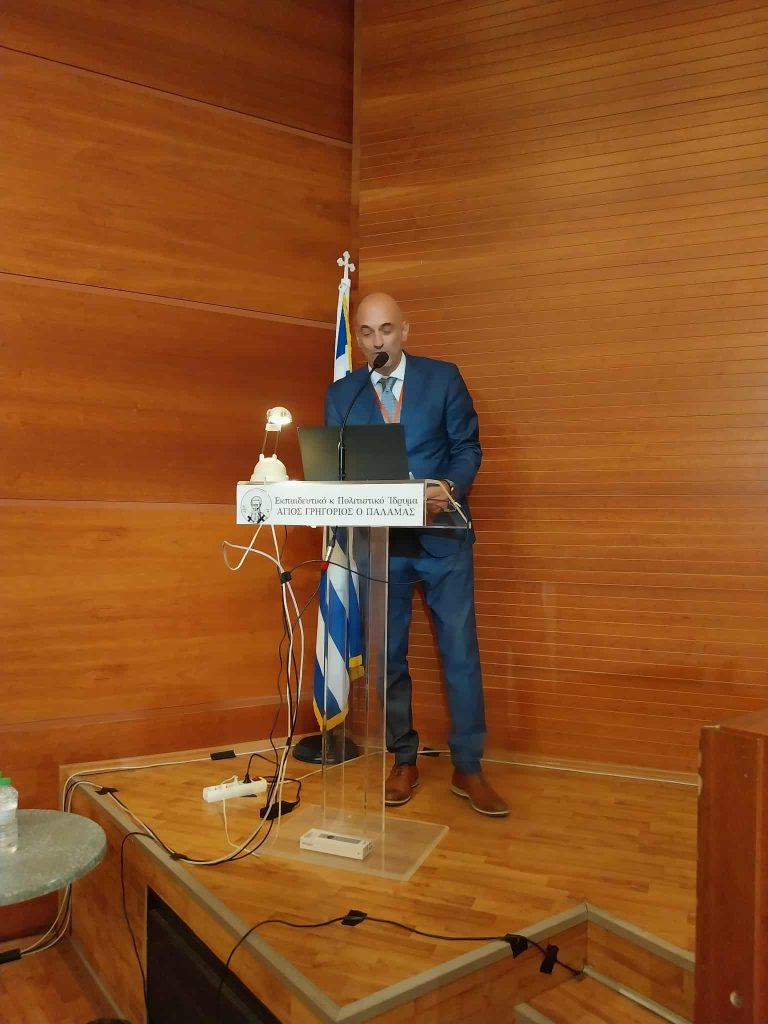
Στον χαιρετισμό του τόνισε ότι η θεολογία δεν πρέπει ποτέ να παραμένει αφηρημένη: «Βιώνεται σε κοινότητες, αμφισβητείται από τη διαφωνία, διαμορφώνεται από την εξουσία και καλείται να δώσει μαρτυρία για το Ευαγγέλιο σε έναν κόσμο που αλλάζει». Υπογράμμισε τον συμβολικό ρόλο της Θεσσαλονίκης ως πόλης συνάντησης, από τον Απόστολο Παύλο μέχρι τους Βυζαντινούς θεολόγους και τα σύγχρονα οικουμενικά κινήματα, υπενθυμίζοντας στους συμμετέχοντες ότι η χριστιανική ταυτότητα σφυρηλατείται πάντα «σε συνομιλία με τους άλλους». Η διεπιστημονική προσέγγιση του συνεδρίου αντανακλά την ιστορική πολυπλοκότητα της ίδιας της Νίκαιας.
Ένα από τα σημαντικότερα γεγονότα της πρώτης ημέρας ήταν ένας συγκινητικός φόρος τιμής στον Καθηγητή Πέτρο Βασιλειάδη, Ομότιμο Καθηγητή του Αριστοτελείου Πανεπιστημίου Θεσσαλονίκης. Τιμήθηκε ο Καθηγητής Βασιλειάδης όχι μόνο για την ακαδημαϊκή του έρευνα στις σπουδές της Καινής Διαθήκης, την ιεραποστολή και τον διαθρησκευτικό διάλογο, αλλά και για τον ρόλο του ως μέντορα και οικουμενικού πρωτοπόρου. «Μας δίδαξε την ανοιχτότητα, το θάρρος στη διαφωνία και την πεποίθηση ότι η ενότητα και ο διάλογος βρίσκονται στην καρδιά του μέλλοντος της Εκκλησίας», δήλωσε ο Δρ. Δημητριάδης.
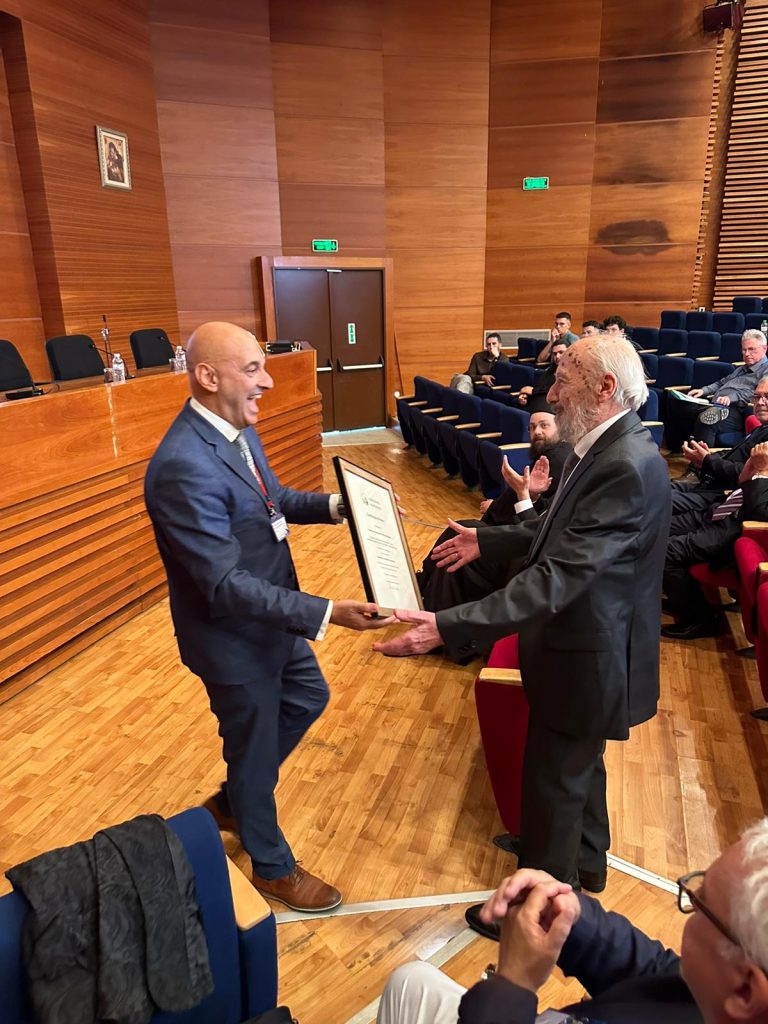
Οι συνεδρίες κάλεσαν τους συμμετέχοντες να παλέψουν με την διαρκή «πληγή» του χριστιανικού διχασμού και τις εντάσεις μεταξύ διαφωνίας και εξουσίας. Οι ομιλητές προκάλεσαν το κοινό να δει τη διαφωνία όχι ως απειλή αλλά ως μια δημιουργική δύναμη στη διαμόρφωση της αυθεντικής χριστιανικής ταυτότητας.
Σύμφωνα με τα λόγια του Δρ. Δημητριάδη: «Αυτή η συγκέντρωση δεν είναι απλώς μια ακαδημαϊκή άσκηση, αλλά μια ευκαιρία να ακούσουμε, να ανταποκριθούμε στις σημερινές κρίσεις διχασμού και αδικίας και να καλλιεργήσουμε δεσμούς φιλίας που θα διαρκέσουν και πέρα από αυτές τις μέρες». Δεκαεπτά αιώνες μετά τη Νίκαια, η Θεσσαλονίκη φιλοξενεί τώρα μια νέα συνοδική στιγμή, μια στιγμή που δεν συγκαλείται από έναν αυτοκράτορα, αλλά από την κοινή δέσμευση ακαδημαϊκών και πιστών να διακρίνουν τι σημαίνουν η ενότητα, η δύναμη και η χριστιανική ταυτότητα για την Εκκλησία του 21ου αιώνα.
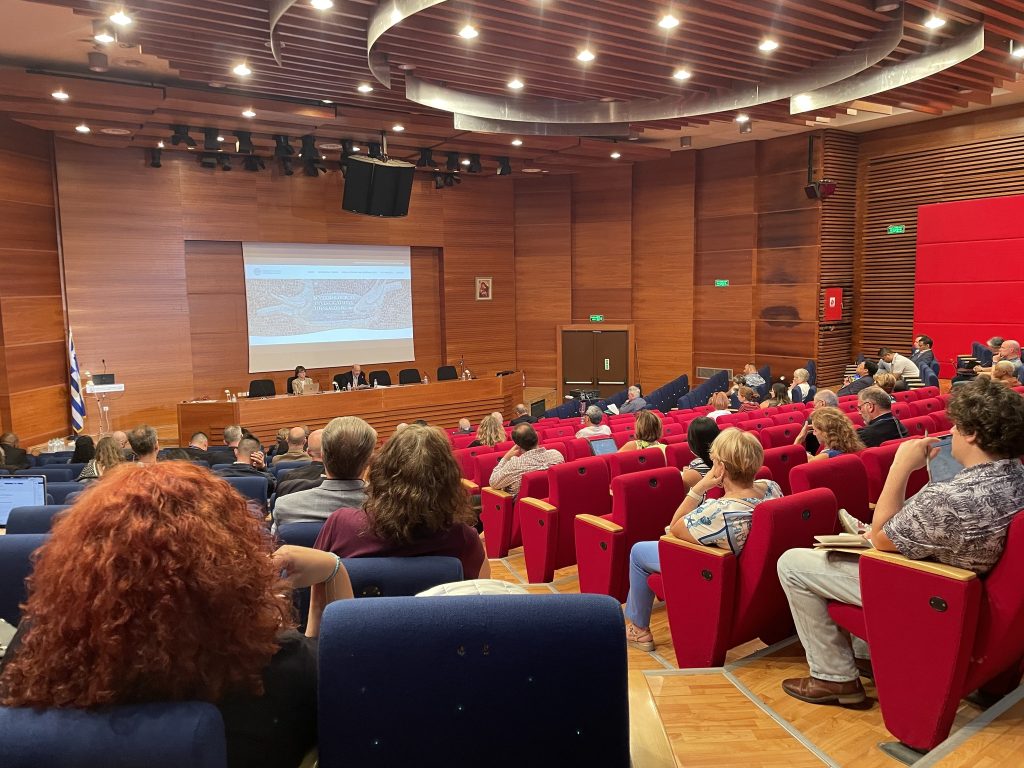
1700 Years After Nicaea: the CEMES co-hosts International Gathering on “Dissent, Power and Christian Identity after Nicaea.” Thessaloniki, September 17, 2025. Thessaloniki has become the meeting point for scholars, church leaders, and ecumenical thinkers from around the globe as the Ecclesiological Investigations International Research Network (EIIRN) opened its 16th International Conference. Marking the 1700th anniversary of the First Council of Nicaea (325 AD), the conference is being held from September 17–19 at the St. Grigorios Palamas Center of the Metropolis of Thessaloniki and the American College of Thessaloniki, in collaboration with institutions including the Center of Ecumenical, Missiological, and Environmental Studies (CEMES), Boston College, Princeton Theological Seminary, Fordham University and others. The gathering, titled “Dissent, Power, and Christian Identity after Nicaea” aims not at repeating old formulas or indulging in historical celebrations, but at creating an interdisciplinary and ecumenical “laboratory” for reflecting on how the legacy of Nicaea shapes the identity of the Church today, its unity, its fractures, and its role in a pluralistic world.
Opening the conference, His Eminence Metropolitan Filotheos, Honorary President of CEMES, offered his blessing and encouragement to the participants. His words, met with warm applause, set the tone of gratitude, responsibility, and hope that marked the beginning of the gathering.
On behalf of CEMES, its President, Professor Dr. Nikolaos Dimitriadis, then invited participants to pause for a moment of silence in memory of the late Professor Chrysostomos Stamoulis, a theologian of Thessaloniki remembered for his spiritual depth and contribution to ecumenical dialogue. Dr. Dimitriadis added: “We remain inspired by the vision of His All-Holiness Ecumenical Patriarch Bartholomew, who blessed our Center from the very first day and reminded us that the future of the Church depends on unity, solidarity, and dialogue. His words continue to guide our mission and our hope for gatherings such as this.” In his welcome address, he emphasized that theology must never remain abstract: “It is lived in communities, challenged by dissent, shaped by power, and called to bear witness to the Gospel in a changing world.” He underlined Thessaloniki’s symbolic role as a city of encounter, from the Apostle Paul to Byzantine theologians and modern ecumenical movements, reminding attendees that Christian identity has always been forged “in conversation with others.” The conference’s interdisciplinary approach reflects the historical complexity of Nicaea itself. Convened by Emperor Constantine I in 325 AD, the Council sought to resolve disputes about the nature of Christ and the identity of the Church, while also setting enduring patterns of conciliar governance and relations between ecclesial and political power. As the conference organizers stress, the challenges of Nicaea and its unfinished questions remain profoundly relevant today in a world marked by religious diversity, political tension, and cultural change.
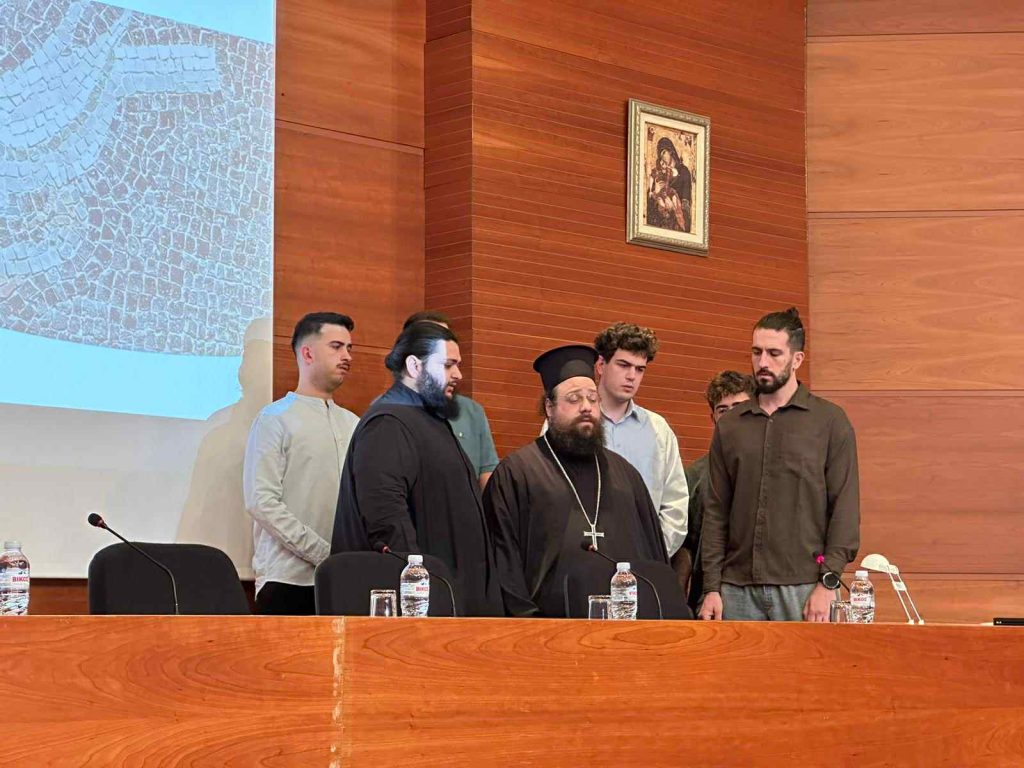
A highlight of the first day was a moving tribute to Professor Petros Vassiliadis, Emeritus Professor of the Aristotle University of Thessaloniki. Honored with a Certificate of Recognition, Professor Vassiliadis was celebrated not only for his scholarship in New Testament studies, mission, and interfaith dialogue, but also for his role as a mentor and ecumenical pioneer. “He taught us openness, courage to dissent, and the conviction that unity and dialogue are at the heart of the Church’s future,” said Dr. Dimitriadis. The day’s plenary sessions invited participants to wrestle with the enduring “wound” of Christian division and the tensions between dissent and authority. Speakers challenged the audience to see dissent not as a threat but as a creative force in shaping authentic Christian identity.
As the conference continues, the hope is that conversations begun in Thessaloniki will extend beyond academia, strengthening bonds of friendship and collaboration across confessions and cultures. In the words of Dr. Dimitriadis: “This gathering is not simply an academic exercise, but an opportunity to listen, to respond to today’s crises of division and injustice, and to nurture bonds of friendship that will last beyond these days.” Seventeen centuries after Nicaea, Thessaloniki now hosts a new conciliar moment, one not convened by an emperor, but by the shared commitment of scholars and believers to discern what unity, power, and Christian identity mean for the Church of the 21st century.
